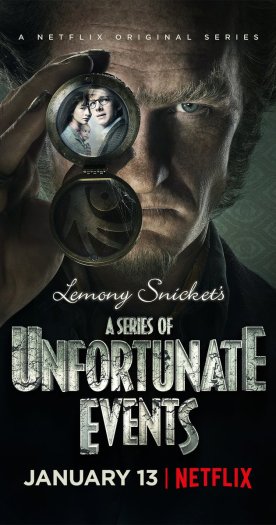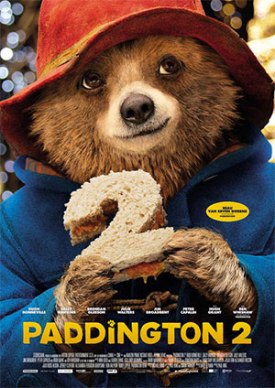As mentioned in my last post, we had an unexpected week break from school and work around here, and when you’re trapped in a house with children, you don’t always get the chance to watch the movies and shows you might really be wanting to see. Luckily, we got to watch some good movies and shows anyhow, even given the family restrictions. Once again, in the interest of time, I kept the reviews shorter than usual.
 The Lego Ninjago Movie is undeniably the weakest of the Lego films so far, but, then again, when your basis for comparison is the amazing The Lego Movie and the surprisingly great The Lego Batman Movie, is falling short of that bar that surprising? What’s more disappointing, though, is that it lacks the rich emotional hooks of its predecessors. Yes, there’s an interesting story about a father who abandoned his child, but The Lego Ninjago Movie doesn’t really invest in that story the way The Lego Movie was about growing up, or how The Lego Batman Movie found resonance in isolation. Moreover, The Lego Ninjago Movie doesn’t use its great cast all that well, essentially wasting a number of great voices (including Kumail Nanjiani, a favorite of mine, as well as Jackie Chan and numerous others). And yet, for all of that, I had a blast watching it, simply because, whatever it lacks in depth and emotion, it makes up for in silliness and absurdity. There’s a reveal early on in the film about an “ultimate weapon” that had me in tears not only the first time, but every time it was brought back. And then there’s Justin Theroux as the film’s ostensible villain and deadbeat dad, swaggering through everything with a cocky voice, impeccable comic timing, and all the best lines. Is The Lego Ninjago Movie anywhere near as good as the movies that came before it? Not even close. But did I laugh really hard throughout it? Oh, god, yes. Rating: *** ½
The Lego Ninjago Movie is undeniably the weakest of the Lego films so far, but, then again, when your basis for comparison is the amazing The Lego Movie and the surprisingly great The Lego Batman Movie, is falling short of that bar that surprising? What’s more disappointing, though, is that it lacks the rich emotional hooks of its predecessors. Yes, there’s an interesting story about a father who abandoned his child, but The Lego Ninjago Movie doesn’t really invest in that story the way The Lego Movie was about growing up, or how The Lego Batman Movie found resonance in isolation. Moreover, The Lego Ninjago Movie doesn’t use its great cast all that well, essentially wasting a number of great voices (including Kumail Nanjiani, a favorite of mine, as well as Jackie Chan and numerous others). And yet, for all of that, I had a blast watching it, simply because, whatever it lacks in depth and emotion, it makes up for in silliness and absurdity. There’s a reveal early on in the film about an “ultimate weapon” that had me in tears not only the first time, but every time it was brought back. And then there’s Justin Theroux as the film’s ostensible villain and deadbeat dad, swaggering through everything with a cocky voice, impeccable comic timing, and all the best lines. Is The Lego Ninjago Movie anywhere near as good as the movies that came before it? Not even close. But did I laugh really hard throughout it? Oh, god, yes. Rating: *** ½
 I’m a huge fan ofLemony Snicket’s Series of Unfortunate Events, a gleefully dark and Gothic children’s series that dabbles in literary allusions, rich symbolism, postmodernism, and black comedy in equal measures, all while spinning a complex story about coming to terms with a lack of answers in the modern world. That may sound pretentious, but it’s hard to convey just how rich and fascinating the series is, all while still being laugh out loud funny, clever, and just a joy. All of which is to say, I wasn’t sure that it would be easy for an adaptation of the works to capture all of that tone and magic. And yet, somehow, Netflix’s take on A Series Of Unfortunate Events is a treat, through and through, capturing the tone of the books perfectly while also diving into the series complicated plotting and weird postmodern touches. There’s little way to talk about the series without talking about Neil Patrick Harris’s performance as Count Olaf (and numerous variations of that character), and rightfully so – Harris makes Olaf menacing while also bringing out the absurdity and comedy of the show, turning an incredibly complicated role into a treat that works. (It’s a fine line to walk, making Olaf’s disguises convincing enough to work while also remaining obvious to us, and Harris straddles that line effortlessly.) For my money, though, Patrick Warburton is the show’s secret weapon, playing Lemony Snicket himself as a wandering Greek chorus and delivering Snicket’s gleefully dark narration in a dry monotone that makes it all the funnier. Add to that a trio of strong performances by the Baudelaires, and the involvement of Daniel Handler (the author behind the Snicket pen name) to adapt the story and his mythology into something manageable (as well as possibly correcting some repetitiveness that cropped up in the first few books in the series), and what you get is a blast. It’s wonderfully silly while keeping the dark themes and worries of the book, captures that sense of hopelessness while keeping everything tongue in cheek, and giving us a visual feast of Gothic touches that brings this bizarre universe to life. I couldn’t be happier with the adaptation (with the possible exception of some slow patches that are as much due to the books we’re covering and less with the adaptation itself) and am already excited as could be for season two (coming in March!). Rating: **** ½
I’m a huge fan ofLemony Snicket’s Series of Unfortunate Events, a gleefully dark and Gothic children’s series that dabbles in literary allusions, rich symbolism, postmodernism, and black comedy in equal measures, all while spinning a complex story about coming to terms with a lack of answers in the modern world. That may sound pretentious, but it’s hard to convey just how rich and fascinating the series is, all while still being laugh out loud funny, clever, and just a joy. All of which is to say, I wasn’t sure that it would be easy for an adaptation of the works to capture all of that tone and magic. And yet, somehow, Netflix’s take on A Series Of Unfortunate Events is a treat, through and through, capturing the tone of the books perfectly while also diving into the series complicated plotting and weird postmodern touches. There’s little way to talk about the series without talking about Neil Patrick Harris’s performance as Count Olaf (and numerous variations of that character), and rightfully so – Harris makes Olaf menacing while also bringing out the absurdity and comedy of the show, turning an incredibly complicated role into a treat that works. (It’s a fine line to walk, making Olaf’s disguises convincing enough to work while also remaining obvious to us, and Harris straddles that line effortlessly.) For my money, though, Patrick Warburton is the show’s secret weapon, playing Lemony Snicket himself as a wandering Greek chorus and delivering Snicket’s gleefully dark narration in a dry monotone that makes it all the funnier. Add to that a trio of strong performances by the Baudelaires, and the involvement of Daniel Handler (the author behind the Snicket pen name) to adapt the story and his mythology into something manageable (as well as possibly correcting some repetitiveness that cropped up in the first few books in the series), and what you get is a blast. It’s wonderfully silly while keeping the dark themes and worries of the book, captures that sense of hopelessness while keeping everything tongue in cheek, and giving us a visual feast of Gothic touches that brings this bizarre universe to life. I couldn’t be happier with the adaptation (with the possible exception of some slow patches that are as much due to the books we’re covering and less with the adaptation itself) and am already excited as could be for season two (coming in March!). Rating: **** ½
 A few years ago, I went to see Paddington after hearing that, yes, despite how dire it looked, how bad it seemed, it was truly a charming, wonderful little film – a verdict I wholeheartedly agreed with. Now comes Paddington 2, which may be even better than the first – it’s funny, it’s charming, but more than that, it’s a welcome tonic of positivity, hope, and humanity at a time when we all seem to be rejecting those things. Like the first, Paddington 2 is a gentle, earnest affair; there’s no snark, no winking double entendres going over the head of kids, no pop culture references to keep people on their toes. (The only movie reference in all of Paddington 2 is to a Charlie Chaplin film, and that’s the kind of thing I can get behind.) Instead, it’s the story of a young bear who thinks that we should be kind and appreciative toward people, and that if we look for the best in people, we will usually find it. Indeed, most of the plot of Paddington 2 revolves around Paddington’s desire to buy a present for his Aunt Lucy, who raised him from a cub. Mind you, that storyline ends up with Paddington in prison after taking the fall for a cunning thief (played by Hugh Grant in a wonderfully ridiculous performance), where he deals with the surliest of cooks (Brendan Gleeson, predictably great). Once again, director Paul King manages to make his film earnest and positive without ever being simplistic or overly sappy, letting his message come through without ever turning it into a “lesson” film. How? Much of it comes from his command of the tone, which is winningly silly throughout (with a lot of inspiration from silent comedy); what’s more, King once again brings more visual flair and imagination than you’d expect, drawing on Wes Anderson at times to turn a tour of London into a trip through a pop-up book, or a dazzling montage of days of cooking into one continuous shot. The result is pure joy throughout – it’s very funny, very sweet, and absolutely works, no matter your age; there’s something wonderful about a children’s film that wants to be about human experiences and kindness, and that goes doubly at a time when such qualities are in short supply. (That the film is set in post-Brexit Britain and features such a casually diverse cast and numerous comments about immigrants bettering themselves is, I’m sure, no accident.) In short, it’s a true treat, and a movie that genuinely made me feel a little better about a world that could produce it. Rating: *****
A few years ago, I went to see Paddington after hearing that, yes, despite how dire it looked, how bad it seemed, it was truly a charming, wonderful little film – a verdict I wholeheartedly agreed with. Now comes Paddington 2, which may be even better than the first – it’s funny, it’s charming, but more than that, it’s a welcome tonic of positivity, hope, and humanity at a time when we all seem to be rejecting those things. Like the first, Paddington 2 is a gentle, earnest affair; there’s no snark, no winking double entendres going over the head of kids, no pop culture references to keep people on their toes. (The only movie reference in all of Paddington 2 is to a Charlie Chaplin film, and that’s the kind of thing I can get behind.) Instead, it’s the story of a young bear who thinks that we should be kind and appreciative toward people, and that if we look for the best in people, we will usually find it. Indeed, most of the plot of Paddington 2 revolves around Paddington’s desire to buy a present for his Aunt Lucy, who raised him from a cub. Mind you, that storyline ends up with Paddington in prison after taking the fall for a cunning thief (played by Hugh Grant in a wonderfully ridiculous performance), where he deals with the surliest of cooks (Brendan Gleeson, predictably great). Once again, director Paul King manages to make his film earnest and positive without ever being simplistic or overly sappy, letting his message come through without ever turning it into a “lesson” film. How? Much of it comes from his command of the tone, which is winningly silly throughout (with a lot of inspiration from silent comedy); what’s more, King once again brings more visual flair and imagination than you’d expect, drawing on Wes Anderson at times to turn a tour of London into a trip through a pop-up book, or a dazzling montage of days of cooking into one continuous shot. The result is pure joy throughout – it’s very funny, very sweet, and absolutely works, no matter your age; there’s something wonderful about a children’s film that wants to be about human experiences and kindness, and that goes doubly at a time when such qualities are in short supply. (That the film is set in post-Brexit Britain and features such a casually diverse cast and numerous comments about immigrants bettering themselves is, I’m sure, no accident.) In short, it’s a true treat, and a movie that genuinely made me feel a little better about a world that could produce it. Rating: *****
